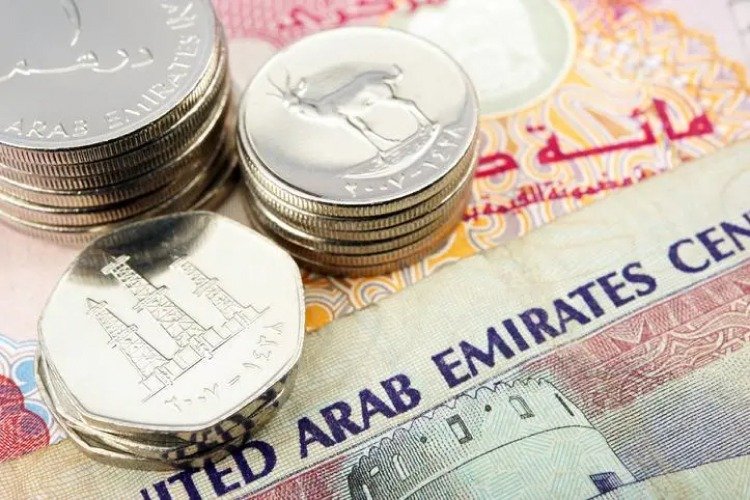UAE's New Stablecoin Regulation Could Transform the Gaming Sector

The Central Bank of the United Arab Emirates (CBUAE) recently unveiled new regulations regarding stablecoins in the Middle Eastern country.
The new framework, which comes into play in mid-2025, will redefine the operation of digital currencies within the Emirates, particularly affecting sectors such as iGaming.
Key Highlights of the New Crypto Regulations
The new regulations stipulate that only Dirham-backed stablecoins are acceptable for payments of goods and services. The UAE’s tech-savvy population will be delighted by this news.
Other popular cryptocurrencies such as Bitcoin and Ether and United States-dollar pegged stablecoins will not be permitted for transactions in the UAE. However, foreign stablecoins can still be used for specific virtual asset purchases, including non-fungible tokens (NFTs).
Irina Heaver, a crypto lawyer based in the UAE and Switzerland, believes the regulation will bring structure and clarity to the crypto space.
“I am all for regulating stablecoins — this is the right thing to do,” Heaver said. “We do not want another Luna collapse that wiped out nearly $60 billion from the crypto markets some years ago.
“Clear regulatory frameworks can help thwart such failures by ensuring that stablecoin issuers have adequate funds and risk management policies to protect investors and maintain market stability. UAE’s latest regulation is a firm step in that direction.”
The new laws eliminate the legal ambiguities surrounding foreign payment tokens, encouraging collaboration between financial technology firms and virtual asset service providers (VASPs).
This will help to mitigate compliance risks and promote secure transactions within the crypto ecosystem.
The Chief Executive Officer of Dubai-based Karm Legal, Kokila Alagh, supports Heaver’s view. He also believes focusing on Dirham-backed stablecoins will not make other cryptocurrencies obsolete but will enhance market stability and cohesion.
What are the Implications for the iGaming Sector?
The iGaming industry in the Middle East will benefit from the regulatory changes. The sector has been growing rapidly, with people across the region ready to embrace online gaming and betting.
Integrating Dirham-backed stablecoins could streamline financial transactions and provide a more regulated environment for iGaming companies operating in the region. Stablecoins are a solid bridge between traditional financial systems and the digital economy. They provide smoother transactions, less volatility and a more transparent financial environment.
Players and operators can expect predictable financial interactions with stablecoins pegged to the UAE Dirham. This will help mitigate the risks associated with price fluctuations in other cryptocurrencies.
With the UAE throwing its weight behind its stablecoins, they will become a viable option on the best Arab casinos online. Accepting stablecoins will broaden payment options for players and operators.
The new regulation will help iGaming companies better navigate crypto compliance. Standardising UAE stablecoins for transactions will allow them to focus on innovation and user experience without worrying about constant regulatory changes.
Shifts & Market Dynamics
The new regulation will also affect how cryptocurrencies are used in the UAE. Companies such as MicroStrategy and Tesla gained massively from holding such assets in their corporate treasuries, and this trend will likely persist in the UAE.
Fineqia CEO, Bundeep Singh Rangar, highlighted that cryptocurrencies such as Bitcoin could be converted into Dirham-backed stablecoins for transactions. With the world increasingly gravitating towards stablecoins, the UAE has moved to develop a structured framework.
Stablecoins are expected to hit $40 billion in purchases by March next year, and the UAE needed to set measures to guide their use.
Future Outlook
The new regulations are expected to improve market stability and investor confidence, addressing issues related to the reliability and transparency of stablecoins. The clear guidelines on Dirham-backed stablecoins and their use will help prevent incidents like the collapse of the TerraUSD (UST) stablecoin.
The rise and fall of UST and sister token Luna (LUNA) is a reminder of what can happen when stablecoins go unregulated, with millions of dollars evaporating into thin air.
Experts argue that even though the regulation may impose new compliance demands on crypto businesses, it will ultimately contribute to a more robust and trustworthy crypto environment.
“One aspect will be the increased scrutiny on compliance — although it might seem restrictive, these are steps that can help build a healthy level of public conversation and regulatory confidence in the crypto sector,” Igor Bershadsky, a Web3 entrepreneur and co-founder of Dubai-based PhronAI said.
Entities need to produce and publish white papers for payment tokens, and this will ensure that only well-vetted and secure stablecoins are in circulation.